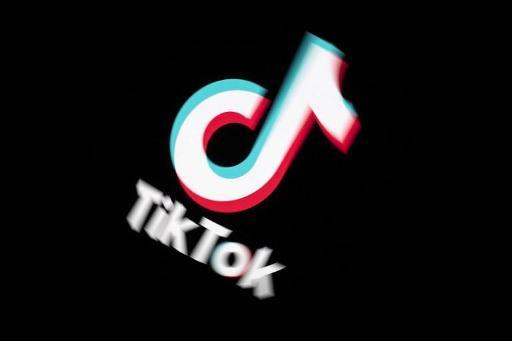If ByteDance doesn’t sell TikTok, the social media app could be banned in the United States. Other countries that (want to) ban the app are India, Taiwan, Pakistan and Afghanistan. Should TikTok be completely overhauled?
TikTok is one of the most popular, but also one of the most geopolitically charged apps today. Chinese parent company ByteDance’s social media has more than one billion users per month worldwide. The app has 150 million users in Europe and 100 million in the United States. On average, users spend an hour and a half a day on TikTok.
TikTok has long ceased to be a plain app where only teenagers share dances. While the app remains popular with young people – from a Study as of 2022 it turns out that in Flanders 56 per cent of children and 86 per cent of youth are using TikTok – for example, many journalists and politicians are also active. But in some Western countries, policy makers see TikTok as a grave danger. Some people fear it is a channel for Chinese espionage and propaganda. The fall of a mysterious Chinese balloon in the United States has reignited discussions about a TikTok ban.
What is it about?
First of all, this concerns the data that TikTok collects from its users. According to privacy declaration this includes the user’s name, date of birth and location, which videos they liked, who they sent the message to and what it contained (to prevent spam, detect crime and protect users). If the user grants permission, ByteDance also gains access to their contact list. In addition, TikTok also requests permission to use the mobile device’s microphone and camera, and users can choose to grant it only when using the app. The latter worries some experts: could TikTok be used in this way to eavesdrop on users?
The next important question is what ByteDance, TikTok’s parent company, does with the data. In principle, TikTok does not collect more data, but also no less than other popular social media apps. But as it concerns Chinese companies, where government interference is usually greater than in Europe or the United States, Western countries are a cause for concern.
In addition, ByteDance’s reputation is not clean. Last summer, the American magazine found out Forbes that the company’s 300 employees used to be used by Chinese state media. In November, ByteDance acknowledged it staff in China are monitoring European user data to ensure a “consistent, fun, and safe” experience on the app. That ended up causing a change in his privacy policy. In December comes Forbes then backtracked with a message that a ByteDance employee was using the app to spy on journalists who reported on TikTok. Meanwhile, the employee will be fired.
Finally, experts also question the TikTok algorithm which is shrouded in mystery. The Cambridge Analytica scandal in 2018 has shown how social media can influence people’s thinking. The British marketing agency then surreptitiously collected data from no less than 87 million users via Facebook and used it for targeted advertising, including for Donald Trump’s presidential campaign.
Should TikTok be overhauled?
The collection of vast amounts of data, uncertainty about how and when mobile phones’ cameras or microphones can be activated, the sharing of that data with the Chinese government, uncertainty about how algorithms work, and strained geopolitical relations with China: they ensure that more and more regulators see unacceptable risks on TikTok.
As a result of those concerns, TikTok was recently banned on the telephones of Flemish, Walloon and federal government offices. This app is also prohibited to government employees in Canada, Denmark, the United States, and the United Kingdom, among others. This rule recently also applies to employees of the European Parliament, the European Commission and the Council.
‘Absolutely true,’ said computer scientist Jeroen Baert. ‘As far as I’m aware, none of the apps collect user data on government employees’ phones. For those working with sensitive data, it’s a risk. This applies not only to TikTok, but also to Twitter, Instagram and Facebook.’
Baert found the banning of TikTok to ordinary citizens harder to justify. “Other than the location of the headquarters, there are no major differences between TikTok and other social media. In addition, such general prohibitions also put you in a water of personal freedom. If people are well informed, they can decide for themselves which privacy sensitive data they want to share. Then they have to realize that data that seems innocent today may not be so in the future. For example, information about a person’s orientation could be suddenly dangerous under a new regime. And because data storage is cheap, you can be sure that all data is preserved. If they are useful, they can be taken for granted.’
“A national ban, as they are envisaged in the United States, seems to me useless and doomed to failure,” said Baert. “If the ban comes, you can be sure that young people will be juggling VPNs and other tricks to get back on TikTok in no time.”
What can ByteDance do?
According to ByteDance, which has always denied that the Chinese government can access data from TikTok users, the TikTok divestiture will not change the flow of data. The company said it would roll out those steps itself, such as verification by a third party. But according to the Bloomberg news agency, TikTok is indeed considering it separate from the Chinese parent company.
Plus, TikTok already works differently in the United States than the rest of the world. Algorithms will be checked there by American software company Oracle and American user data will also be stored on servers in the US. Meanwhile, the Chinese government also called on the country to stop “unjustified attacks” against the app. According to Wang Wenbin, a spokesman for China’s foreign ministry, Washington has not provided any evidence that TikTok threatens the national security of the United States. TikTok also wants to gain trust in Europe European data center.
Is the West hypocritical?
Critical voices were also heard from Europe and the United States in the discussion. “We suspect things are suspicious going on from TikTok, we know about Meta (the parent company behind Facebook and Instagram, editor’s note),” Baert said. ‘Meta has been involved in several scandals. Therefore it is quite hypocritical for the West to blame China. Other than a few incidents involving journalists, there is little real evidence that ByteDance did anything wrong. Maybe they know how to hide it better, but that can’t be proven at this point.’
PVDA MP Jos D’Haese, who is the most popular Flemish politician on TikTok with 122,000 followers, does not want to participate in what he calls a ‘witch hunt’. “Of course there are risks, but for me they are no bigger with TikTok than they are with American apps like Facebook or Twitter,” he said in a statement. Morning. Twitter is run by a billionaire with far-right sympathies. We know that Angela Merkel was bugged by America for years. This is part of the escalation of tensions against China by the United States. Donald Trump started it. China is a growing global power and now has popular social media. Washington couldn’t handle it. Don’t get me wrong: I’m worried about the way social media stores ridiculous amounts of data and who has access to it: companies and governments. But I want a real debate about it.’
Bart disagreed. “In terms of national security, I think TikTok – as well as all data collection apps – should be banned for government employees, in the interest of the state and society. Sorry Jos D’Haese, that does mean you have to carry two phones with you. That may be a little inconvenient, but the days when a phone weighed 12 kg are long gone.’ (laugh)

“Coffee trailblazer. Analyst. General music geek. Bacon maven. Devoted organizer. Incurable internet ninja. Entrepreneur.”







